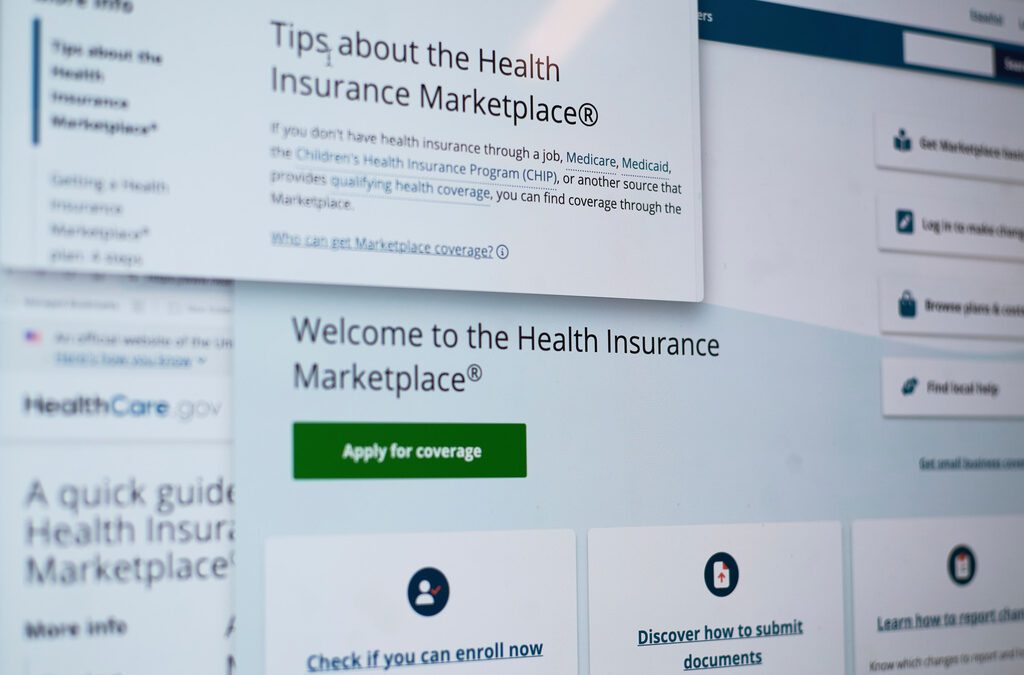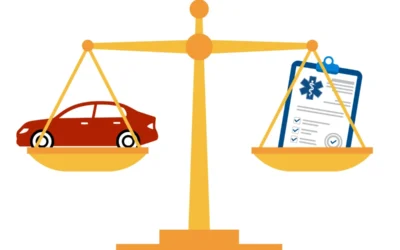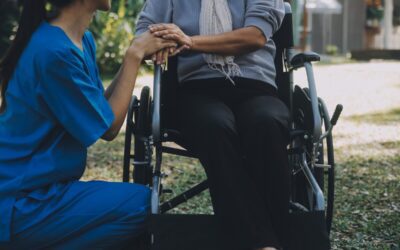
While boating on the Mississippi River, Megan gives kisses to one of her many rescue dogs, Kota, who has since passed away. Photo courtesy Megan
Legislative Democrats are behind a bill to protect Wisconsinites like Megan, whose access to reproductive health care saved her life.
In La Crosse County, 41-year-old Megan enjoys gardening, fishing, hunting, conservation, and volunteer work. “I like to give it back to our community,” Megan said.
And no one in the community can forget her passion for rescuing animals. “Since I have lost my organs and all that, I am without human children—but I definitely love my dog,” she said.
Megan wanted to have kids
Ten years ago, Megan and her then-husband were trying to have children. She became pregnant in July 2015, but in August, she started having severe abdominal pains on her left side. She had to make several appointments to find out if there was cause for alarm and remembers the overwhelming feeling of dismissal.
“I kind of felt like I was being treated like ‘the overreactive pregnant woman,’” she recalled. “I’d continue to go there and be like, ‘There’s something very serious going on.’”
Appointments, tests, scans, and exams gave no answers and only delivered more confusion. “My doctor saw the fetus in the uterus,” Megan explained. “They said, ‘You’re fine.’”
Scans showed Megan’s baby was developing as it should, but the scared mother-to-be was still experiencing intense pain—and she couldn’t shake the gut feeling that something was terribly wrong.
Once, Megan even felt what she described as a “pop inside of me.” “I kept being told that it’s probably an ovarian cyst or something,” she said.
The right place at the right time
It wasn’t until a fall day in late October that her gut feeling made itself known. It was an unassuming day—a clinic visit for an ultrasound appointment when, in the exam room, she began to “sweat profusely.”
“I’m sitting in there by myself waiting for my ultrasound,” Megan recounts. “I had four different spells where I actually was going into shock.”
“I was rupturing. I was internally bleeding.”
Amid the distress, Megan couldn’t get to the “emergency call” to summon help. “I thought, ‘This isn’t good.’ I felt myself dying.”
A nurse did come in and realized the urgency of the new situation. “They gave me as much pain medicine as they could in the clinic and then wheeled me across the street for emergency surgery,” Megan said. “I was in emergency surgery for about six hours—quite a while.”
What doctors found in that ER was the reason for the internal bleeding.
“I had three different grapefruit sized blood clots that they had removed from the different times that I was internally bleeding—I could have quite easily passed away each of those times.”
They also found something more rare—the actual cause of the bleeding. It was a surprise to everyone. A twin—another fetus—on Megan’s fallopian tube.
“So while it was attached to my left fallopian tube as it was growing, my fallopian tube was continuously rupturing,” explained Megan. “To the point I don’t even have one anymore—it just got blown to smithereens.”
“They didn’t know I had a twin blowing up my fallopian tube—literally.”
Megan had a heterotopic pregnancy
A heterotopic pregnancy is a rare condition where both an intrauterine pregnancy (in the uterus—IU) and an ectopic pregnancy (outside the uterus—EU, usually in the fallopian tube) occur at the same time.
According to the National Institute of Health, heterotopic pregnancy is a rare clinical and potentially dangerous condition that can be life-threatening and can be easily missed.
EU pregnancies are non-viable and can be fatal to the mother if left untreated. Keeping the IU pregnancy is sometimes possible following the removal of the EU, but in Megan’s case, doctors had to remove both pregnancies.
“I was super, super grateful to be alive,” Megan said. “The reason why I think my story is really important to tell is that I shouldn’t have been that lucky.”
Making sure women like Megan stay alive
After Roe v. Wade was overturned, Wisconsin Republicans invoked an 1849 criminal abortion ban, which does not include exceptions for rape, incest, or health of the mother, to restrict reproductive freedom in Wisconsin.
That law remains on the books, but its enforceability has been under active dispute and review by the Wisconsin Supreme Court. A decision is expected by July.
In the meantime, abortion is legal in Wisconsin up to 20 weeks post-fertilization (about 22 weeks gestation), with exceptions for the life or health of the mother. Access is limited to a few cities and telemedicine care is banned, so many patients still have to travel out of state for care.
“Republican politicians and extreme right-wing justices on the Supreme Court have unleashed a neverending onslaught of attacks on access to abortion, including the repeal of Roe v. Wade and a proposed federal abortion ban,” said state Rep. Lisa Subeck (D-Madison), at a press conference.
Wisconsin legislative Democrats have introduced a new bill to protect Wisconsinites from losing access to life-saving reproductive health care.
“The proposed legislation aims to repeal Wisconsin’s 1849 law, which some interpret as a near-total abortion ban,” said Sen. Kelda Roys (D-Madison).
Subeck and Roys introduced the Abortion Rights Restoration Act (ARRA), which would establish a statutory right to abortion and repeal some medically unnecessary restrictions on abortion care.
“The Abortion Rights Restoration Act would ensure that every Wisconsinite has the right to determine their own future and make their own reproductive health care decisions without interference from politicians,” Subeck said. “Abortion is essential and often life-saving health care.”
“It should be available safely, legally, and without judgement because every pregnancy is different and every patient’s circumstances are unique.”
The legislation would also end requirements that people who want abortions must attend counseling and see an ultrasound of their pregnancy. It would also allow for telehealth and medication abortion to be practiced in Wisconsin, and it would do away with a requirement that doctors who perform abortions must have nearby hospital admitting privileges—restrictions that especially impact people living in rural areas with limited access to hospitals.
Subeck said the bill ensures abortion is regulated in the same way as other health practices. “Politicians have treated abortion differently than any other medical procedure,” she said. “They have placed limits on if and how abortion can be provided.”
“They have implemented numerous hoops to jump through to obtain care.”
“You don’t have to jump through all these other hoops in order to get your wisdom teeth pulled,” added Megan. “You don’t have this criteria in order to have other health care provided to you, do you?”
“Personally, I think my health care looks different because of the stigma behind the word ‘abortion.’ But I want to live—I want to survive.”
Hoops would have likely proven fatal for Megan
For Megan in the ER, there was no time to waste. “We don’t have time to wait for somebody to deem it necessary,” she said. “I didn’t have the time to wait for somebody to decide that I was dying enough.”
The only way to describe what happened that day, she said, is life-saving health care. “There’s no other way to shake a stick at it—this is a procedure that saves people’s lives. I am alive today because abortion saved my life.”
“It’s not debatable. I get to contribute to society. I get to volunteer for organizations. I get to rescue animals. I get to do things and be a contributing member of society because I’m not dead.”
Support Our Cause
Thank you for taking the time to read our work. Before you go, we hope you'll consider supporting our values-driven journalism, which has always strived to make clear what's really at stake for Wisconsinites and our future.
Since day one, our goal here at UpNorthNews has always been to empower people across the state with fact-based news and information. We believe that when people are armed with knowledge about what's happening in their local, state, and federal governments—including who is working on their behalf and who is actively trying to block efforts aimed at improving the daily lives of Wisconsin families—they will be inspired to become civically engaged.


Congress gifts higher premiums to more than 300,000 Wisconsinites
By Judith Ruiz-Branch Heading into the holidays, hundreds of thousands of Wisconsinites will be burdened with wondering if they will be...

OPINION: Without the ACA Premium Tax Credit, my family’s health coverage is at risk
Like so many other working families, I don’t know what my family would do without the Affordable Care Act (ACA) premium tax credits. As these...

How to support Wisconsin residents as SNAP funding disappears
As the nation remains in a government shutdown, food assistance programs in Wisconsin are feeling the effects. FoodShare, Wisconsin’s federal...

October is Breast Cancer Awareness Month. Here’s how you can help in Wisconsin
It's Breast Cancer Awareness Month. Here's how you can help fight for a cure throughout Wisconsin. October is globally recognized as Breast Cancer...





